Span>What is Ggyu ransomware?
Ggyu is a dangerous virus that encodes files in order to extort money. The threat can get on a victim’s system together with trojans, botnets, exploits, and corrupted spam email attachments. The minute in, it right away works its malevolent procedures to open the enciphering process. Inside encoding, Ggyu ransomware applies a strong cipher to lock user files so that they might not be employed or accessed. Afterward, the victim is recommended to acquire a decryption utility from cyber crooks to get his/her files back. However, we don’t suggest that you pay them revenue since there is a huge risk of earning cheated by malicious software developers. If you obtained this contamination on your os, you can make use of our tutorial so to uninstall Ggyu ransomware and decode .Ggyu files without paying the ransom money.
This variety notwithstanding, they all observe the same minimal layout – to coerce money in return for precious statistics. Promptly after penetration, it begins to encode user files appending them in addition to .ggyu extension. The quantity of fine is $980 and to motivate victims to pay quicker, criminals grant a 50% bargain for payment in 72 hours. For this purpose, cybercriminals want you to contact them by email: support@bestyourmail.ch / supportsys@airmail.cc. The more detailed information you can find in the TXT file virus creates:_readme.txt:
In the end, it’s up to you to suppose it or not, but let us advise you – no one can guarantee that they would do their element of the deal. On the contradictory, there is a large jeopardize of being scammed and merely dumped alongside little. The only safe way to fix the matter is to terminate Ggyu ransomware from the computer through relevant application so as to halt the nasty motions of this infection and then fix your content from the backup.
There exists two solutions to uninstall Ggyu ransomware and decode your data. The at the start is to utilize an automated uninstallation tool. This approach is useful even for unskilled users because the elimination application can delete all situations of the malicious software in just several clicks. The moment is to utilize our manual deletion instruction. This is a much more baffling way that calls for exclusive pc capabilities.
Screenshot of deceitful Windows bring up to date you might notice during the encoding:
How Ggyu ransomware gets on my computer?
Cybercriminals use multiple ways to distribute the malware software to the target pc. Ransomware malicious software may slither into victims’ operating systems etc. than in one or two approaches, in most situations, a cryptoviral scam breach is performed together with the following techniques:
Warning, multiple anti-virus scanners have detected possible malware in Ggyu ransomware.
| Anti-Virus Software | Version | Detection |
|---|---|---|
| Qihoo-360 | 1.0.0.1015 | Win32/Virus.RiskTool.825 |
| Malwarebytes | v2013.10.29.10 | PUP.Optional.MalSign.Generic |
| McAfee | 5.600.0.1067 | Win32.Application.OptimizerPro.E |
| Tencent | 1.0.0.1 | Win32.Trojan.Bprotector.Wlfh |
| NANO AntiVirus | 0.26.0.55366 | Trojan.Win32.Searcher.bpjlwd |
| VIPRE Antivirus | 22224 | MalSign.Generic |
| Kingsoft AntiVirus | 2013.4.9.267 | Win32.Troj.Generic.a.(kcloud) |
| McAfee-GW-Edition | 2013 | Win32.Application.OptimizerPro.E |
| Malwarebytes | 1.75.0.1 | PUP.Optional.Wajam.A |
| ESET-NOD32 | 8894 | Win32/Wajam.A |
| Dr.Web | Adware.Searcher.2467 | |
| K7 AntiVirus | 9.179.12403 | Unwanted-Program ( 00454f261 ) |
Ggyu ransomware Behavior
- Modifies Desktop and Browser Settings.
- Common Ggyu ransomware behavior and some other text emplaining som info related to behavior
- Installs itself without permissions
- Ggyu ransomware Connects to the internet without your permission
- Slows internet connection
- Redirect your browser to infected pages.
- Steals or uses your Confidential Data
- Shows Fake Security Alerts, Pop-ups and Ads.
- Integrates into the web browser via the Ggyu ransomware browser extension
- Changes user's homepage
- Distributes itself through pay-per-install or is bundled with third-party software.
- Ggyu ransomware Shows commercial adverts
- Ggyu ransomware Deactivates Installed Security Software.
Ggyu ransomware effected Windows OS versions
- Windows 10
- Windows 8
- Windows 7
- Windows Vista
- Windows XP
Ggyu ransomware Geography
Eliminate Ggyu ransomware from Windows
Delete Ggyu ransomware from Windows XP:
- Click on Start to open the menu.
- Select Control Panel and go to Add or Remove Programs.
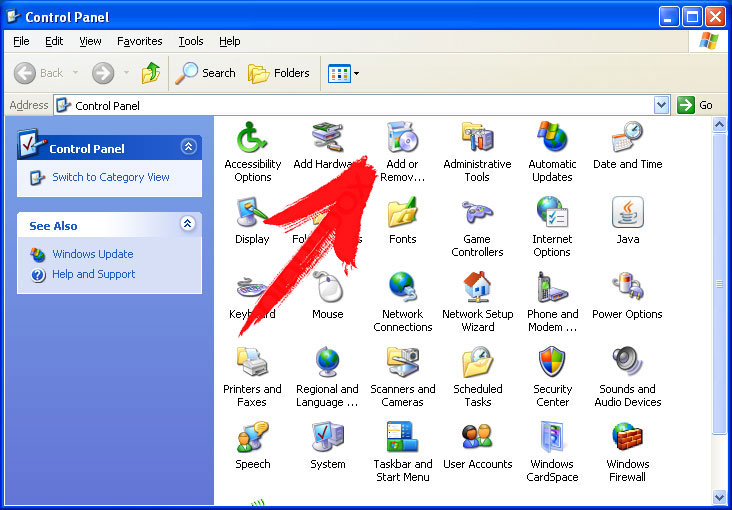
- Choose and remove the unwanted program.
Remove Ggyu ransomware from your Windows 7 and Vista:
- Open Start menu and select Control Panel.

- Move to Uninstall a program
- Right-click on the unwanted app and pick Uninstall.
Erase Ggyu ransomware from Windows 8 and 8.1:
- Right-click on the lower-left corner and select Control Panel.
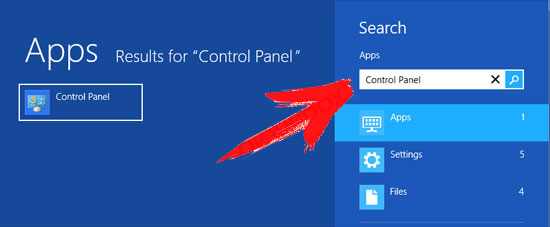
- Choose Uninstall a program and right-click on the unwanted app.
- Click Uninstall .
Delete Ggyu ransomware from Your Browsers
Ggyu ransomware Removal from Internet Explorer
- Click on the Gear icon and select Internet Options.
- Go to Advanced tab and click Reset.
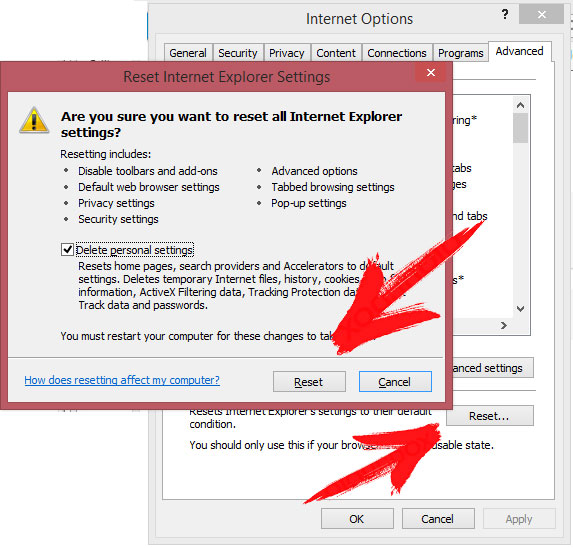
- Check Delete personal settings and click Reset again.
- Click Close and select OK.
- Go back to the Gear icon, pick Manage add-ons → Toolbars and Extensions, and delete unwanted extensions.
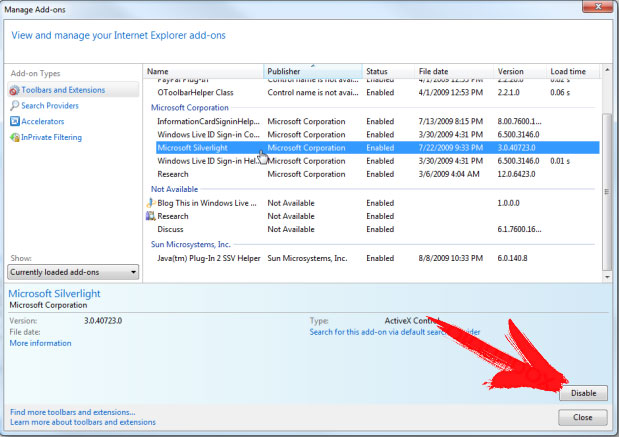
- Go to Search Providers and choose a new default search engine
Erase Ggyu ransomware from Mozilla Firefox
- Enter „about:addons“ into the URL field.
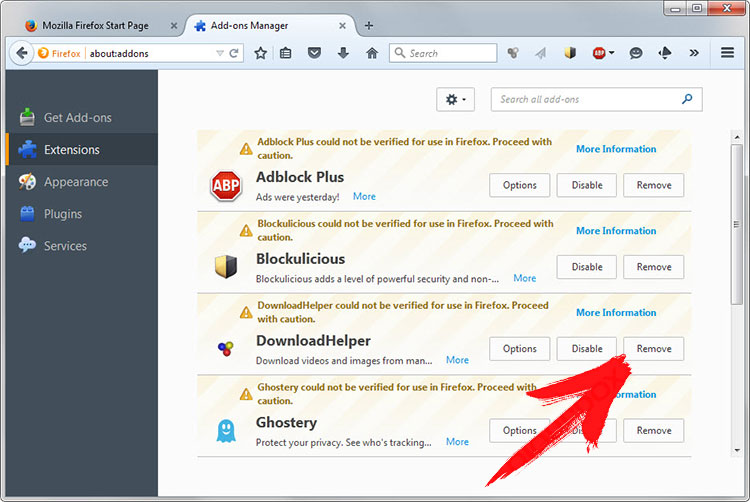
- Go to Extensions and delete suspicious browser extensions
- Click on the menu, click the question mark and open Firefox Help. Click on the Refresh Firefox button and select Refresh Firefox to confirm.
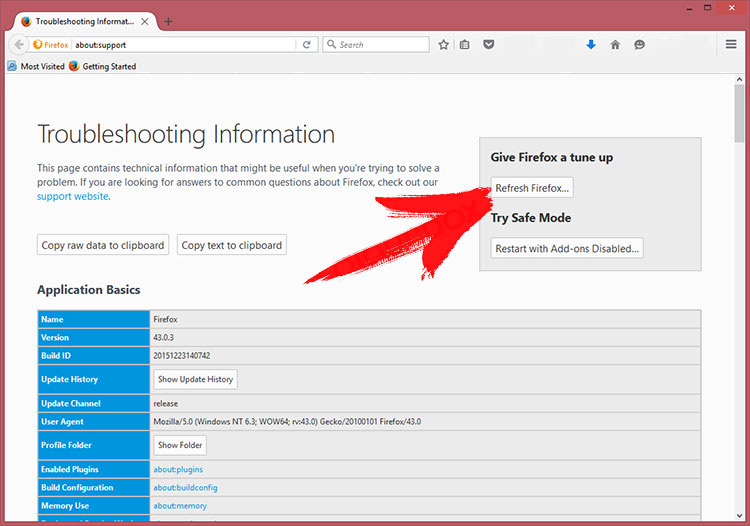
Terminate Ggyu ransomware from Chrome
- Type in „chrome://extensions“ into the URL field and tap Enter.
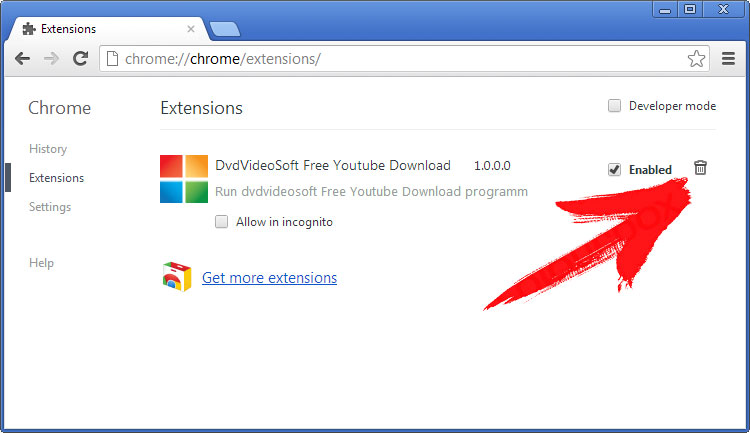
- Terminate unreliable browser extensions
- Restart Google Chrome.
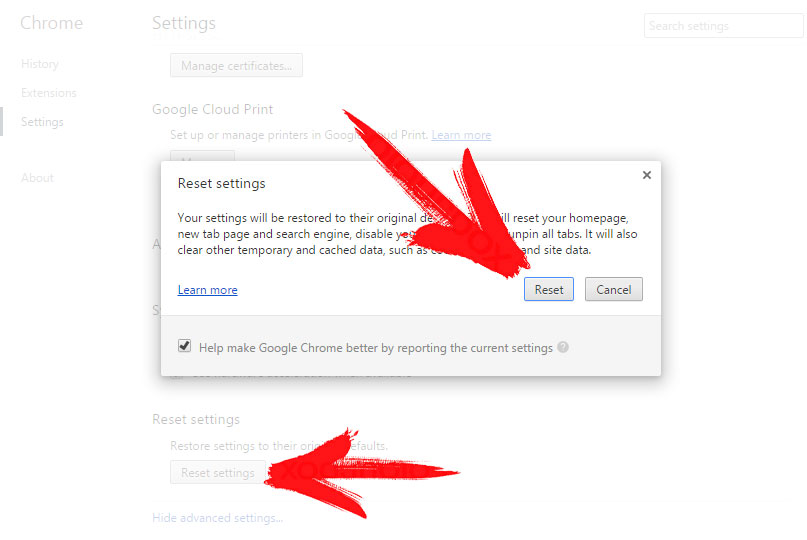
- Open Chrome menu, click Settings → Show advanced settings, select Reset browser settings, and click Reset (optional).